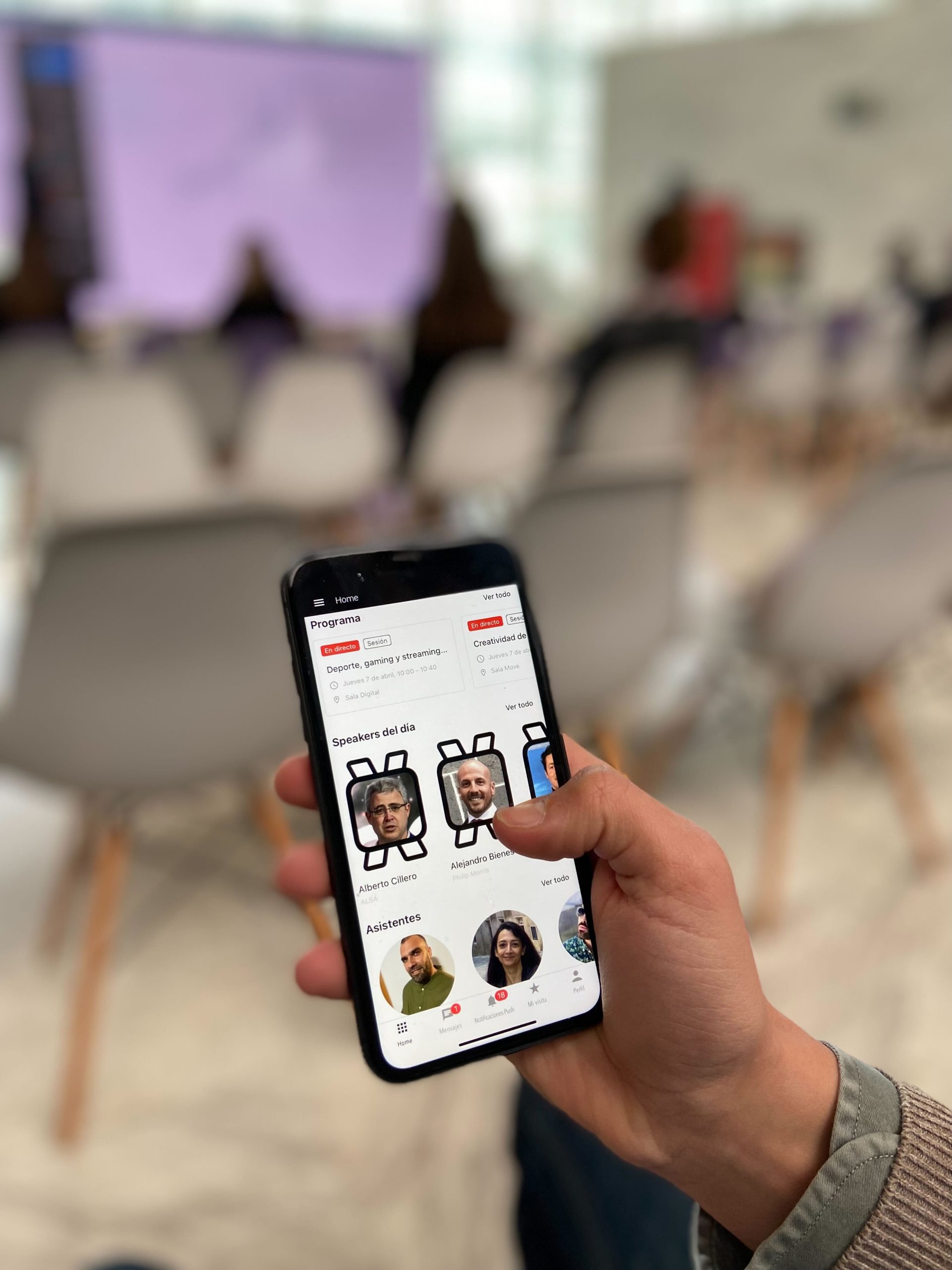Índice de contenidos
In the fast-paced world of events, innovation is key to standing out and capturing the attention of your audience. With so many options available, it is essential to use innovative event marketing strategies that not only attract attention, but also generate interest and engagement. In this article, we will explore some creative and effective ideas to promote your events in a unique and engaging way.
Immersive and virtual experiences
Virtual Reality (VR) and Augmented Reality (AR):
Use virtual and augmented reality technology to create immersive experiences that transport your attendees to new worlds. From virtual tours of places of interest to interactive product demonstrations, the possibilities are endless with VR and AR.

Live Broadcasts and 360° Content:
Offer live broadcasts of your events for those who can’t attend in person. In addition, provide 360° content that allows viewers to explore the event environment from any angle.
Interactive Games and Activities:
Integrate interactive games and activities into your virtual event to keep participants engaged and entertained. From trivia challenges to virtual escape rooms, these experiences add a touch of fun and excitement to your event.
Personalisation and segmentation
Personalised content:
Use data from your attendees to personalise event content and communications. From personalised welcome messages to session recommendations based on individual interests, personalisation creates a more relevant and engaging experience.

Audience Segmentation:
Divide your audience into segments based on demographic, behavioural or geographic criteria. Then, tailor your marketing strategy to each segment, making sure to deliver messages and offers that resonate with their specific interests and needs of your event marketing strategy.
Remarketing campaigns:
Implement remarketing campaigns to re-engage those who have shown interest in your event but have not yet taken action. Use personalised ads and special offers to incentivise registration and participation.
Collaborations and strategic alliances
Co-Organising Events:
Collaborate with other companies or organisations to co-host events that appeal to a wider audience. This collaboration not only broadens your reach, but also gives you access to new resources and promotional opportunities.
Sponsorships and Endorsements:
Seek out sponsors and brand ambassadors who can help promote your event to their own audience. Establishing strategic partnerships with relevant brands can increase the credibility and visibility of your event.
Influencer partnerships:
Work with influencers and content creators to promote your event on their platforms. Influencers can reach specific audiences and have a big impact on the promotion of your event.

User Generated Content (UGC)
Contests and Challenges:
Organise contests and challenges that invite participants to create content related to your event. From photos and videos to reviews and testimonials, user-generated content can be a powerful promotional tool.
Hashtag Campaigns:
Create unique hashtags for your event and encourage attendees to share their experiences on social media. Make it easy to find and curate content related to your event and encourage audience participation.
Interactivity and Participation
Custom Event Apps:
Develop a custom app for your event that allows attendees to access detailed programme information, interact with other participants and participate in interactive activities such as polls and games.
Custom Social Media and Hashtags:
Use custom social networks and hashtags to encourage participation and interaction before, during and after the event. Attendees can share their experiences, photos and comments, creating an online community around the event.
Real-Time Voting and Open Questions:
Integrate real-time voting tools and open questions during event sessions to encourage audience participation. Attendees can vote on relevant topics or ask questions directly to speakers, creating an interactive and dynamic environment.
In a world saturated with events and activities, it is crucial to stand out and capture the attention of your audience with innovative and effective marketing strategies. Whether through immersive and virtual experiences, personalisation and segmentation, strategic collaborations or user-generated content, the key is to offer something unique and relevant that resonates with your attendees. By implementing these strategies, you’ll be on the right path to creating successful and memorable events that leave a lasting impression on your audience.
Related blogs:
- What’s the secret to partnering with sponsors for your events?
- Monetising online events: effective strategy
- Definitive guide to conference organization
- Best times to send email marketing for event organisation
